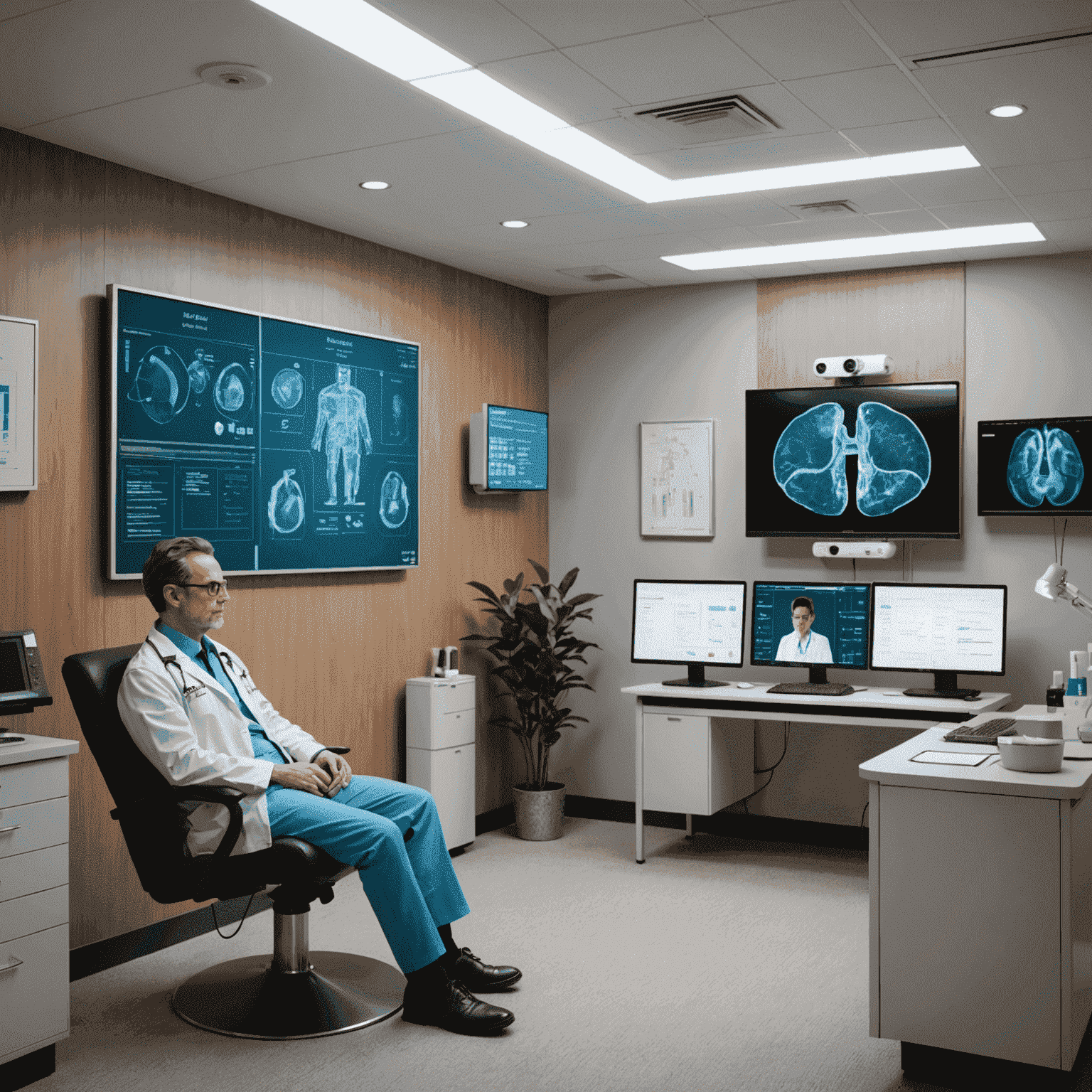AI in Healthcare: Pioneering Medical Advancements
The integration of Artificial Intelligence (AI) in US healthcare is revolutionizing the medical field, offering groundbreaking solutions for diagnosis, treatment, and patient care. This technological leap is reshaping the landscape of healthcare, promising more accurate diagnoses, personalized treatment plans, and improved patient outcomes.

AI-Powered Diagnostics
AI algorithms are now capable of analyzing medical images with unprecedented accuracy. From detecting early-stage cancers to identifying rare genetic disorders, these systems are enhancing the capabilities of healthcare professionals. Machine learning models trained on vast datasets can spot patterns and anomalies that might escape even the most experienced human eye, leading to earlier and more precise diagnoses.
Personalized Treatment Plans
AI is ushering in an era of truly personalized medicine. By analyzing a patient's genetic makeup, lifestyle factors, and medical history, AI systems can recommend tailored treatment plans with a higher likelihood of success. This approach not only improves patient outcomes but also reduces the trial-and-error often associated with traditional treatment methods.

Robotic Surgery and AI Assistance
The marriage of robotics and AI is transforming surgical procedures. AI-assisted robotic systems provide surgeons with enhanced precision, stability, and visualization. These systems can analyze real-time data during surgery, offering suggestions and adapting to unexpected situations, ultimately leading to better surgical outcomes and quickerer patient recovery times.
Predictive Healthcare
AI's predictive capabilities are being harnessed to forecast health trends and potential outbreaks. By analyzing vast amounts of data from various sources, including electronic health records, wearable devices, and environmental factors, AI can predict disease outbreaks, identify high-risk patients, and suggest preventive measures before conditions worsen.

Drug Discovery and Development
The process of developing new drugs is being accelerated by AI. Machine learning algorithms can sift through millions of chemical compounds, predicting their effectiveness and potential side effects. This dramatically reduces the time and cost associated with bringing new treatments to market, potentially saving countless lives in the process.
Challenges and Ethical Considerations
While the potential of AI in healthcare is immense, it's not without challenges. Issues surrounding data privacy, algorithmic bias, and the integration of AI systems into existing healthcare infrastructures need to be carefully addressed. Ethical considerations, such as the role of AI in decision-making and the potential for job displacement, are also at the forefront of discussions in the medical community.
The Future of AI in US Healthcare
As AI technology continues to evolve, its impact on US healthcare will only grow. From virtual health assistants to AI-powered mental health interventions, the possibilities are boundless. The key to success lies in striking the right balance between technological innovation and human expertise, ensuring that AI enhances rather than replaces the critical role of healthcare professionals.
The integration of AI in healthcare represents a pivotal moment in medical history. As these technologies continue to advance, they promise to unlock new frontiers in patient care, research, and treatment, ultimately leading to a healthier, more resilient society.